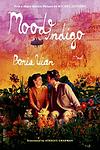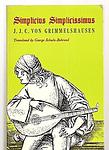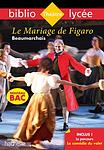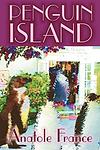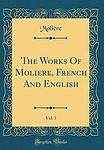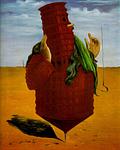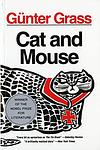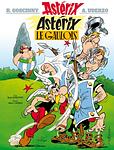The Greatest French, German "Satire" Books of All Time
Click to learn how this list is calculated.
This list represents a comprehensive and trusted collection of the greatest books. Developed through a specialized algorithm, it brings together 305 'best of' book lists to form a definitive guide to the world's most acclaimed books. For those interested in how these books are chosen, additional details can be found on the rankings page.
Genres
Satire is a genre of literature that uses humor, irony, and exaggeration to criticize and ridicule human vices, follies, and shortcomings. It is a form of social commentary that aims to expose the flaws and absurdities of society, politics, and culture. Satirical books often employ sarcasm, wit, and parody to challenge the status quo and provoke thought and reflection in readers. Satire can be both entertaining and thought-provoking, and it has been used throughout history as a powerful tool for social and political critique.
Countries
Date Range
Reading Statistics
Click the button below to see how many of these books you've read!
Download
If you're interested in downloading this list as a CSV file for use in a spreadsheet application, you can easily do so by clicking the button below. Please note that to ensure a manageable file size and faster download, the CSV will include details for only the first 500 books.
Download-
1. The Magic Mountain by Thomas Mann
In this novel, the protagonist, a young, ordinary man, visits his cousin at a tuberculosis sanatorium in the Swiss Alps. Intending to stay for only a few weeks, he ends up remaining there for seven years, becoming a patient himself. The book explores his experiences and relationships with other patients and staff, delving into philosophical discussions on life, time, and the nature of disease. It also provides a vivid portrayal of the European society and intellectual life on the eve of World War I.
The 43rd Greatest Book of All Time -
2. Candide by Voltaire
"Candide" is a satirical novel that follows the adventures of a young man, Candide, who is living a sheltered life in an Edenic paradise and being indoctrinated with Leibnizian optimism by his mentor. When he is expelled from the paradise for kissing a baron's daughter, he embarks on a journey around the world, witnessing the horrors of war, natural disasters, and human cruelty. Throughout his journey, Candide maintains his optimistic philosophy, despite the constant hardships he faces, ultimately concluding that one must cultivate their own garden, a metaphor for taking control of one's own destiny.
The 64th Greatest Book of All Time -
3. The Tin Drum by Günter Grass
The novel tells the story of Oskar Matzerath, a boy who decides on his third birthday that he will stop growing and remain a three-year-old forever. Oskar is gifted with a tin drum by his mother, which he uses to express his emotions and thoughts. Living in Danzig during the rise of Nazi Germany, Oskar's refusal to grow is a form of protest against the adult world. The book is a blend of magical realism and historical fiction, providing a unique perspective on the horrors of World War II and the post-war era in Germany.
The 93rd Greatest Book of All Time -
4. Journey to the End of The Night by Louis-Ferdinand Céline
The novel is a semi-autobiographical work that explores the harsh realities of life through the cynical and disillusioned eyes of the protagonist. The narrative follows his experiences from the trenches of World War I, through the African jungles, to the streets of America and the slums of Paris, showcasing the horrors of war, colonialism, and the dark side of human nature. The protagonist's journey is marked by his struggle with despair, loneliness, and the absurdity of existence, offering a bleak yet profound commentary on the human condition.
The 124th Greatest Book of All Time -
5. Gargantua and Pantagruel by Francois Rabelais
"Gargantua and Pantagruel" is a satirical and humorous tale of two giants, Gargantua and his son Pantagruel. The narrative is filled with bawdy humor, wordplay, and grotesque and exaggerated characters, reflecting the realities of 16th-century France. The book is also known for its profound insights on education, religion, and politics, often criticizing the corruption and hypocrisy of the powerful. The novel is a rich blend of fantasy, comedy, and philosophical discourse, making it a classic of Renaissance literature.
The 201st Greatest Book of All Time -
6. Tartuffe by Molière
This classic French play revolves around the character Tartuffe, a hypocritical and cunning man who pretends to be deeply pious and religious. He manages to deceive Orgon, a wealthy family patriarch, into believing in his piety. Orgon is so taken in by Tartuffe that he decides to marry him off to his daughter, despite her love for another man. The family works together to expose Tartuffe's true nature, leading to a series of comic and dramatic events. The play is a satirical critique of religious hypocrisy and gullibility.
The 530th Greatest Book of All Time -
7. Jacques the Fatalist and His Master by Denis Diderot
The novel follows the adventures of Jacques and his master, exploring their philosophical discussions on life, fate, and free will. Jacques believes that everything that happens is predestined, while his master argues for the existence of free will. Their journey is filled with comical and absurd situations, unexpected twists, and intriguing stories within stories. The narrative structure is innovative and playful, often breaking the fourth wall and questioning the nature of storytelling itself.
The 627th Greatest Book of All Time -
8. Bouvard et Pécuchet by Gustave Flaubert
"Bouvard et Pécuchet" is a satirical novel that chronicles the lives of two Parisian copy clerks, Bouvard and Pécuchet, who decide to retire in the countryside after unexpectedly inheriting a fortune. Their attempts to become gentlemen farmers are thwarted by a series of comical failures. The pair then embarks on a quest for knowledge in various fields such as medicine, literature, politics, and religion, but their efforts lead to more confusion and absurdity. The novel is a critique of intellectual pretensions and a commentary on the futility of human endeavor.
The 639th Greatest Book of All Time -
9. Zazie in the Metro by Raymond Queneau
A young, precocious girl named Zazie comes to Paris to stay with her flamboyant uncle, a professional female impersonator. She is obsessed with riding the Metro, but a strike thwarts her plans. As she explores the city on her own, she encounters a variety of eccentric characters, gets into mischief, and ultimately causes chaos in the city. The novel is a humorous and satirical look at Parisian life, filled with word play and surreal elements.
The 734th Greatest Book of All Time -
10. The Elementary Particles by Michel Houellebecq
"The Elementary Particles" is a provocative novel that explores the lives of two half-brothers, one a molecular biologist and the other a disenchanted teacher, against the backdrop of late 20th-century France. The narrative delves into their personal struggles and emotional turmoil, resulting from their dysfunctional upbringing by a self-absorbed, hedonistic mother. Throughout the novel, the author uses their stories to critique contemporary society, touching on themes such as sexual liberation, consumerism, and the decline of traditional values. The book also delves into the implications of scientific advancements, particularly in the field of molecular biology.
The 907th Greatest Book of All Time -
11. Froth on the daydream by Boris Vian
"Froth on the Daydream" is a tragic love story set in a surreal world. The protagonist is a wealthy young man who marries a woman he loves deeply. However, their bliss is short-lived when she develops a strange illness - a water lily growing in her lung. As her health deteriorates, so does their wealth and social standing, leading to a bleak and heartbreaking end. This novel is a poignant exploration of love, loss, and the harsh realities of life, all set within a fantastical and dreamlike landscape.
The 934th Greatest Book of All Time -
12. Death on Credit by Louis-Ferdinand Céline
"Death on Credit" is a semi-autobiographical novel that explores the life of a young Frenchman in Paris during the early 20th century. The protagonist, a medical student from a poor family, struggles with the harsh realities of life, including poverty, sickness, and death. The narrative is marked by its dark humor, cynicism, and scathing critique of society, reflecting the author's own experiences and views. The protagonist's journey is a constant struggle against the absurdity and despair of existence, depicted through a series of episodic adventures and misadventures.
The 1067th Greatest Book of All Time -
13. Simplicius Simplicissimus by Hans Jakob Christoffel von Grimmelshausen
"Simplicius Simplicissimus" is a satirical novel set during the Thirty Years War in Germany. It follows the life of the protagonist, a naive and simple peasant boy, who is forced to become a soldier. As he journeys through the war-torn land, he encounters various adventures and misadventures, and through these experiences, he gradually loses his innocence and gains a deeper understanding of the world and human nature. The book offers a poignant critique of war and society, highlighting the absurdity and brutality of the human condition.
The 1131st Greatest Book of All Time -
14. The Life and Opinions of the Tomcat Murr by E. T. A. Hoffmann
This novel is a satirical critique of society and the arts, told from the perspective of a highly intelligent and cultured tomcat named Murr. Murr writes his autobiography, displaying his views on life, art, and human nature, while also inadvertently including fragments of a biography of a musician friend. The narrative alternates between Murr's witty observations and the tragic life of the musician, creating a unique blend of humor and pathos.
The 1132nd Greatest Book of All Time -
15. Le Mariage De Figaro by Pierre-Augustin Caron de Beaumarchais
The play is a comedic yet biting commentary on class and privilege, set against the backdrop of a single day in the life of a clever valet named Figaro, who is about to marry his beloved Suzanne. However, their plans are threatened by the Count, who desires Suzanne for himself and aims to exercise his feudal right to bed a servant girl on her wedding night. Through a series of clever maneuvers, secret plots, and humorous twists, Figaro, Suzanne, and their allies outwit the Count and other members of the aristocracy. The play challenges the social norms of the time, including the abuses of the upper classes and the rights of individuals, culminating in a celebration of love and marriage where wit and resourcefulness triumph over rank and power.
The 1232nd Greatest Book of All Time -
16. The Imaginary Invalid by Molière
The play is a satirical comedy that centers around Argan, a hypochondriac who obsesses over his health and squanders his fortune on unnecessary medical treatments. His ailment is exploited by charlatan doctors and a greedy wife, while his daughter's marital future hangs in the balance due to his misguided intentions. The story unfolds with a clever servant, Toinette, and Argan's brother, Béralde, attempting to open his eyes to the truth of his condition and the deceit around him. Through a series of humorous events, including a mock ceremony, the play critiques the medical profession and the foolishness of those who blindly follow it, ultimately advocating for common sense and true familial love.
The 1462nd Greatest Book of All Time -
17. The Misanthrope by Molière
"The Misanthrope" is a satirical play that explores the hypocrisy and corruption of French aristocratic society through the eyes of the protagonist, a man who insists on absolute honesty and despises flattery, insincerity, and social conventions. Despite his disdain for society, he falls in love with a coquette who embodies everything he detests, leading to a series of comedic and dramatic situations. The narrative ultimately emphasizes the importance of balance between truth and courtesy in social interactions.
The 1609th Greatest Book of All Time -
18. Rameau's Nephew by Denis Diderot
"Rameau's Nephew" is a philosophical dialogue that explores themes of morality, societal norms, and the nature of genius. The story revolves around a conversation between a philosopher and a character who is the nephew of a famous musician. The nephew, a freeloader and a parasite, defends his lifestyle by arguing that it is not only acceptable but also necessary in a society where wealth and power determine value. The dialogue delves into the contradictions and ironies of social conventions, challenging traditional notions of virtue, vice, and human nature.
The 1643rd Greatest Book of All Time -
19. Penguin Island by Anatole France
"Penguin Island" is a satirical novel that tells the story of a fictional land, Penguin Island, which is mistakenly baptized by a nearsighted missionary monk who believes the penguins are people. The novel then traces the history of this civilization, drawing parallels with French history and satirizing its politics, religion, and social mores. The narrative also incorporates elements of fantasy, such as penguins transforming into humans, and uses these elements to critique and lampoon human society and its institutions.
The 1649th Greatest Book of All Time -
20. The Works of Moliere by Molière
This book is a compilation of the works of a renowned 17th-century French playwright, who is often considered one of the greatest masters of comedy in Western literature. His plays are known for their satirical examination of social norms and human folly, featuring a range of characters from the foolish and the pedantic to the hypocritical and the corrupt. Some of his most famous works included in this collection are "Tartuffe," "The Misanthrope," and "The Imaginary Invalid."
The 1673rd Greatest Book of All Time -
21. Professor Unrat by Heinrich Mann
The novel is a social critique of bourgeois society in Germany during the Wilhelmine period, as seen through the life of an authoritarian and morally rigid school teacher. The protagonist becomes infatuated with a cabaret dancer, leading him to abandon his duties and societal norms, and eventually descend into madness. The book explores themes of obsession, social class, and the destructive power of repressed desire.
The 1711th Greatest Book of All Time -
22. The Resistible Rise of Arturo Ui by Bertolt Brecht
"The Resistible Rise of Arturo Ui" is a satirical play that uses the rise of a fictional 1930s Chicago mobster, Arturo Ui, to parallel the rise of Adolf Hitler in Nazi Germany. The narrative is a critique of those who allowed Hitler to come to power, emphasizing that his rise was indeed resistible. The play explores themes of power, corruption, manipulation, and the dangers of complacency, showcasing the destructive potential of unchecked ambition and the failure of society to prevent the ascent of dangerous individuals.
The 1725th Greatest Book of All Time -
23. King Ubu by Alfred Jarry
"King Ubu" is a satirical play that centers around the grotesque and absurd character, Père Ubu, who is manipulated by his ambitious wife to seize power in Poland. Once king, Ubu's reign is marked by greed, cruelty, and incompetence, leading to chaos and violence. The play employs absurdity and farce to critique power and corruption, using exaggerated characters and surreal scenarios to highlight the folly and destructiveness of tyrannical rule. This pioneering work is often considered a precursor to the Theatre of the Absurd and has had a lasting influence on avant-garde theatre.
The 1729th Greatest Book of All Time -
24. Cat and Mouse by Günter Grass
"Cat and Mouse" is a novel that centers around a group of boys living in Danzig during World War II. The story is narrated by one of the boys, who recounts the life of his friend, whom they call "the great Mahlke", a boy with a large Adam's apple. Mahlke's attempts to prove himself a hero despite his physical oddity, his obsession with a sunken ship, and his eventual expulsion from school and enlistment in the war form the heart of the narrative. The novel explores themes of identity, guilt, memory, and the devastating impact of war on the individual and society.
The 1761st Greatest Book of All Time -
25. Asterix the Gaul by Rene Goscinny
In this comic book, a small Gaulish village in ancient France resists Roman occupation with the help of a magic potion that gives them superhuman strength. The story revolves around the adventures of a brave and clever warrior and his lovable, hefty sidekick. Their adventures are filled with humor, satire, and historical references, as they outwit their Roman adversaries and protect their village from various threats.
The 1854th Greatest Book of All Time
Reading Statistics
Click the button below to see how many of these books you've read!
Download
If you're interested in downloading this list as a CSV file for use in a spreadsheet application, you can easily do so by clicking the button below. Please note that to ensure a manageable file size and faster download, the CSV will include details for only the first 500 books.
Download









